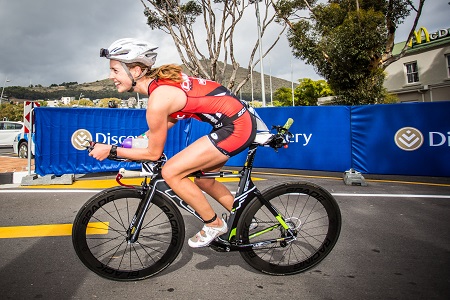Please click here to login into Discovery Digital Id
10 tips for beginner athletes

Whether you’ve decided to get healthier, been instructed to exercise more by your doctor, or feel like challenging yourself, setting yourself a target is a great way to achieve your goal. And what better goal than an event like the upcoming Discovery Duathlon? Training for an event gives you a very specific goal: distance, amount of time to train, as well as specific sporting code. This makes entering for an event a great way to improve your health.
Of course, entering for a Duathlon is not the only event you can enter that’ll provide the same benefits. You could aim for a particular time in which to complete a parkrun – 5km, free, timed runs held in various locations across the country every Saturday at 8am – or enter for a another organised event like a long bike ride.
Regardless, there are some things that newbie athletes should be well aware before they begin training.
Don’t invest all your time in your chosen sport
One of the reasons that Duathlon – a multisport event – has become more popular over the years is because athletes are realising is more exciting to train for three sports than one. It’s also more beneficial to your health and your body. If you’ve entered for a running race, you may get bored with running on most days of the week; and you may put enough strain on the same muscles and joints so often you end up injuring them. However, if you include other sports and forms of exercise to your training schedule, you’ll strengthen more of your muscles and it could help you to avoid injury. Taking part in different sporting codes can also help you to learn more skills.
Set up small goals that work up to your big one
If your goal is to finish the Discovery Duathlon, start by entering smaller, fun races like 5-10km runs or 20km bike races. Your smaller goals should help you to achieve your greater goal by building your fitness, strength, and confidence.
Use the tools at your disposal
Fitness apps available on your mobile devices, heart rate monitors, wearable devices like fitness bands and pedometers, and tracking tools that help you record your exercise and diet can make the difference between an effective fitness routine and one that falls short. Experiment until you find something that works for you and that you enjoy using – tools can help encourage you to persist with your exercise routine.
Get assessed
If you are on the Vitality program with Discovery, you have access to various professionals who can help ensure that you are fit and healthy enough to meet your fitness goals. Visit your doctor or a pharmacist to get a Vitality health check to determine that you don’t have any particular risks. Visit www.discovery.co.za to see what other checkups you can do to ensure your continued health.
Health starts and ends with your diet
The dietitian you visit for your Vitality nutrition assessment will tell you that you should eat to support your exercise routine. This means that the better you eat; the better you can train. Healthy meals and snacks are high in vitamins and minerals, low in calories from sugar and unhealthy fat, and are balanced in good fat, lean protein, and good carbohydrates. When in doubt, choose vegetables, fruits, nuts, whole wheat grains, and lean meats like chicken without the skin.
Drink enough
Hydration is essential for the healthy functioning of all your body systems from your brain to your muscles. Keep well hydrated throughout the day and while you exercise. Dehydration can cause cramping, raise your risk of heatstroke, and cause headaches. Drink about one cup of clear water for every 20 minutes you exercise; more if you’re outside in the heat and/or you’re sweating profusely.
Don’t neglect strength training
Not only does strength training torch calories, improving your weight to strength ratio, but it can also help to prevent injuries and even support your training. When you spend a lot of time running for instance, you are only working particular muscles which can take strain if the surrounding muscles are not strong. Take some time, twice or three times a week, to do strength and body weight exercises like squats, lunges, push ups, and crunches.
Equip yourself correctly
Having the proper equipment for the sport you’re doing is important for comfort and to help prevent injury. Running in shoes that fit properly can support your ankles, prevent blisters, and even allow you to run with a better gait. Cycling in good, padded shorts can reduce discomfort and chaffing. Visit a good sport store and talk to someone knowledgeable about what equipment you need. Check your Vitality benefit: various stores that stock good sport equipment are on the HealthyGear benefit.
Focus on the technical aspects
As a beginner, it’s not a bad idea to visit a biokineticist to check your form and help you correct it if necessary. Although you could jump into a sport, you will can reduce the chance of injuring yourself if you’re sure of how to go about it. Sports that are high impact, like running, boxing, and weight training in particular, need to be technically correct. Gym staff, a coach, or a personal trainer can give you advice as well.
“What are you waiting for? Go enter the Discovery Duathlon now and RUNCYCLERUN!”
